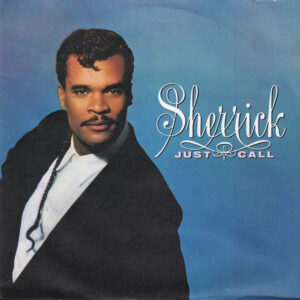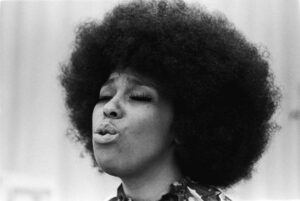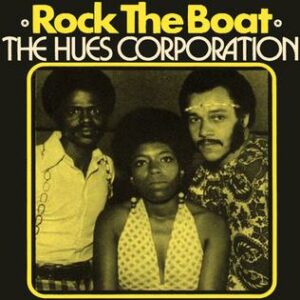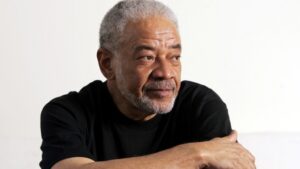It almost seemed like an eternity since Randy Crawford and Joe Sample first created a smooth, grooving masterpiece in the late seventies that continues to make a lasting impression on the radio and in the clubs, while also inspiring two movie soundtracks and several covers. When Crawford was first introduced to the music world, The Crusaders with group founder/pianist Sample backed the Georgia born song stylist on her 1976 Warner Brothers debut Everything Must Change. A few years later, Crawford returned as a guest vocalist on the title track of The Crusaders’ "Street Life" – their biggest hit to date, scoring top slots on the Billboard jazz, dance, and black charts (one of several previous names for the Hot R&B charts) in 1979. The emotionally-charged track fueled a life of its own on two action films, Sharkey’s Machine (1981) & Jackie Brown (1997), and covers by Jill Scott and Rashaan Patterson. Following the success of "Street Life," The Crusaders recorded another disc in 1980 with Crawford, Now We May Begin, but nothing reached the heights of their first hit together.
Crawford and the Crusaders’ musical paths continued to cross from time to time for live shows over the next 30 years, but it was Randy Crawford relationship with the Crusader’s Joe Sample that would lead to further studio collaborations and critical acclaim. From the day Crawford signed with Warner Brothers, Sample had been an advocate of her exquisite vocal skills. Decades later they still prove fans of each other, with the reconnected performing duo having released two discs in recent years: Feeling Good and now their latest, No Regrets.
As a solo artist, a member of The Crusaders and an in-demand studio musician, Sample was presented with many opportunities to team up with some top-class vocalists, including: Tina Turner, Marvin Gaye, Bill Withers and Lalah Hathaway. Yet, Sample has been quoted saying that Crawford was by far the best interpreter of his music-once she grasped his preference for simple vocal styling, an ability to sustain one note instead of running a flurry of melismic notes. Sample’s was the ultimate compliment he could pay to a singer who had demonstrated that she could handle other artists’ material in almost any genre – pop, blues, or country – and still make it a remarkable experience.
Sample was not alone in his adoration of the unassuming lady’s acumen. Crawford enjoyed a very respectable career outside of her forays with Sample and the Crusaders. She had more success abroad than at home, where her Spanish-accented "Almaz" (1986) was a #4 charting hit in the U.K., one of several charters Crawford would enjoy over the years in various European markets. Conversely, outside of "Street Life," Crawford rarely cracked the top thirty in the U.S. Domestically, there have been throughout her career critical acclaim for her work and notable radio hits including her rendition of Gaye/Tami Terrill timeless duet "Your Precious Love" with Al Jarreau and Bob Dylan’s inspirational hit "Knocking On Heaven’s Door." But her biggest hits always seem to somehow include Sample, including a 1992 reunion with the jazz man on a moving remake of Journey’s easy listening rock hit "Who’s Crying Now."
Since Crawford and Sample started touring for a series of live concerts including an Abbey Road session in 2007 in London, England, their musical sparks remain intact. In the past three years, they have released two discs with an intimate, live music setting using a jazz quartet. Feeling Good primarily celebrates African-American female vocalists that broke the pop music mold, such as Nina Simone and Dakota Staton. Another track from the 2006 release revisits a past Crawford/Crusaders’ collaboration "Last Night At Danceland," which was slightly revamped, but maintained the spirit of the original versions.
Released in late 2008, No Regrets has a more chilled-out vibe than Feeling Good, mixing a hodgepodge of pop, R&B, jazz and blues. Crawford hits her vocal stride on many occasions, but there are some rootsy moments where succeeds her recent best, sounding just as resilient as did when recording "Street Life." She has a great affinity for the traditional blues idiom such as the 1955 Count Basie Orchestra landmark "Everyday I Have The Blues," complete with the original Ernie Wilkins arranged intro, and "Today I Sing The Blues," first recorded by a young Aretha Franklin in 1960. Crawford also channels her R&B side for the rare Stax Records chestnut from Mel & Tim, "Starting All Over Again," and again on Bobby Blue Bland’s "Lead Me On."
Considering Crawford’s uncanny abilities to effectively transform other artists’ material like "Knocking On Heaven’s Door" and "Who’s Crying Now" into something new, there are still a few shortcomings on No Regrets. Crawford’s soulful frosting falls quite short on Sarah McLachlan’s monster hit "Angel," when measured against the vulnerability heard on McLachlan’s original version. While the musicians provide an admirable cool jazz mood on "Me Myself & I," Crawford’s laid-back take on the standard frankly dampens Billie Holiday’s unwavering rendition.
As an accompanist and well-versed musician in his own right, Sample is completely sensitive to who the real star on this disc is. His impeccable framing of Crawford’s vocals and his graceful solos inject an extra boost so even the mellowest of arrangements on No Regrets avoid turning into elevator music dullness.
Crawford still continues to occasionally guest with The Crusaders during their tours. But her rich vocal tapestry actually registers more in a quieter, acoustic setting with her duo partner Sample on both No Regrets and Feeling Good than it does with the full band. In the long run, I expect Crawford and Sample to continue their enduring musical relationship with a few more discs in the near future. I admit No Regrets does not drip the jazzy funk of "Street Life," but they still know how to throw down the smooth grooves.
By Peggy Oliver









